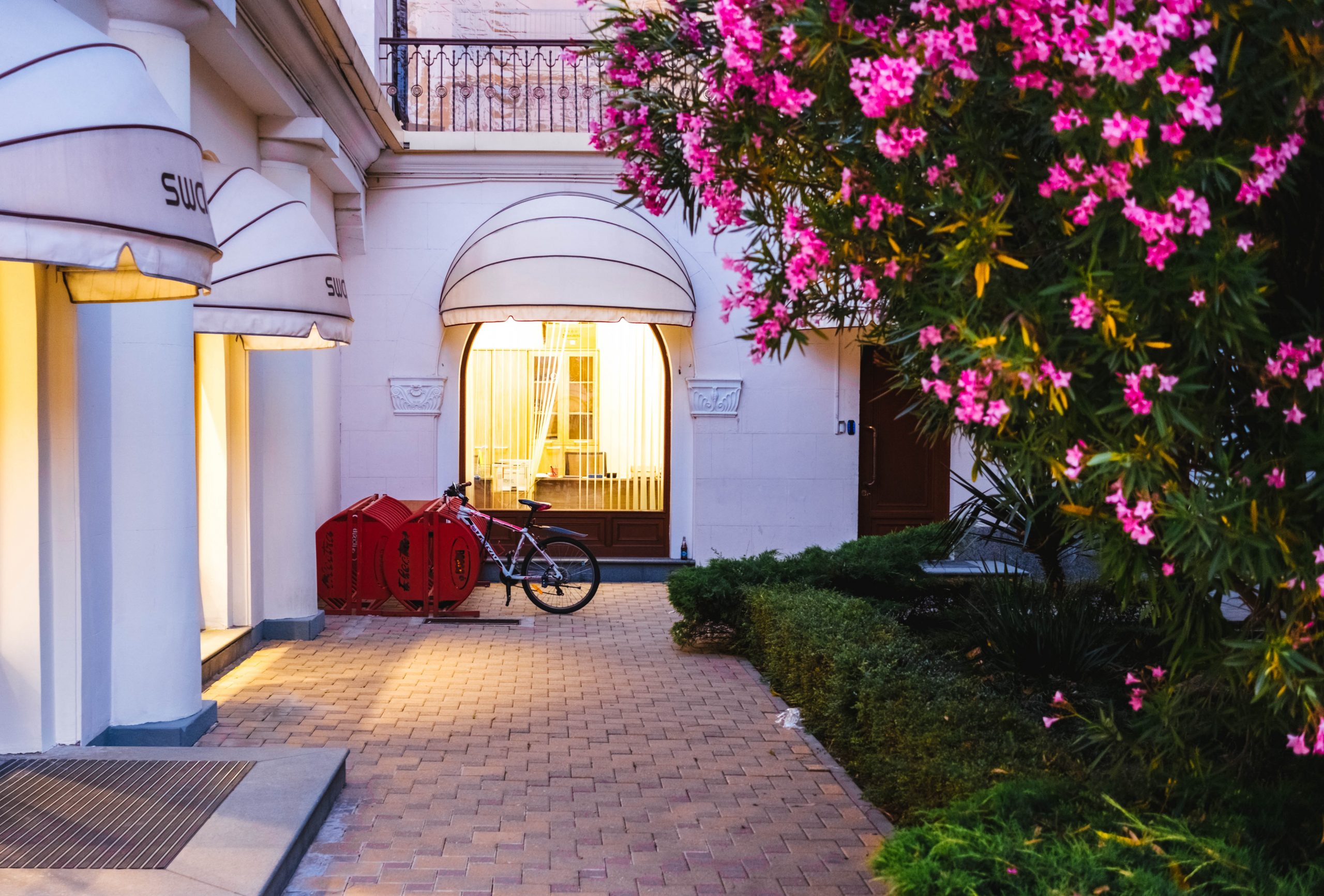How Hotels Prepare for the Christmas Peak Season
The Christmas season marks a period of intense activity for the hotel industry, as families and friends embark on journeys to celebrate the festivities. According to an article from Travel Wise, a significant increase in demand has been recorded during the Christmas and New Year season in prominent global destinations. Specifically, the global hotel occupancy rate has already reached 23%, representing a 10% increase compared to the same period last year, as reported by Travel & Tour. This growing demand underscores the importance for hotels to implement key strategies to ensure an exceptional experience for their guests during this special season. Below, I detail the essential practices that hotels adopt to stand out and efficiently respond to the Christmas demand. Facility optimization As a first step, hotels must ensure that their facilities are impeccable to welcome guests during the Christmas season. This process includes the cleaning and disinfection of rooms, the maintenance of common areas, and the incorporation of decorative elements in line with the festive spirit. Special offers and promotions With the aim of attracting guests, hotels implement exclusive offers and promotions during the Christmas season. These offerings may include discounts on rates, accommodation packages with complimentary breakfast, or free Christmas activities. Additional staff hiring To meet
The new era of luxury sustainability in hospitality
We have been discussing how 2023 is the year of sustainability across all sectors. However, this time, I am pleased to address a crucial aspect of this paradigm shift: sustainability in the hotel industry applied to luxury, which translates into the pursuit of a balance between exclusive comfort and environmental responsibility. That said, hotel sustainability is not a trend but a solid commitment to preserving the environment and the local community. Incorporating this concept into luxury goes beyond a mere "green" label and manifests in specific practices aimed at reducing the environmental and social impact of the hotel industry. Eco-Luxury stands as an example of industry progress, reflecting the increasing awareness among both hoteliers and travelers. The integration of sustainable practices in the luxury sector is not only appealing to environmentally conscious travelers but also contributes to preserving local traditions, supporting community livelihoods, and ensuring the conservation of natural resources for future generations. Growing trend and market data According to Facts and Factors, the global luxury hotel market was valued at approximately $95.11 billion in 2021 and is expected to reach $160.48 billion by 2028, with a compound annual growth rate (CAGR) of about 4.95% between 2022 and 2028. On the other hand, according to
Wellness is the new luxury in hotels
We live in an era where the awareness of well-being and health has become a guiding light in our daily decisions, and the COVID-19 pandemic, with its undeniable influence, has acted as a catalyst in how we perceive and value these aspects in our everyday lives, even influencing our choices when planning trips or vacations. According to a report by Grand View Research, the global wellness tourism market reached a value of $814.6 billion in 2022, with a projected steady annual growth of 12.42% from 2023 to 2030. Furthermore, the Wellness Tourism Market Outlook from Fact MR predicts this market to reach $2.3 trillion by the end of 2033, starting from $880 billion in 2023. Beyond the COVID-19 pandemic, social media plays a pivotal role in the evolution of this ongoing trend towards well-being. Influencers, well-known figures, and enthusiasts worldwide share their experiences in yoga, meditation, healthy eating, and self-care during their vacations, directly influencing travelers' expectations and reshaping not only what we expect from the destinations we visit but also what we demand from hotels. Just over a fifth (21%) of global travelers are currently traveling for health and wellness reasons, according to a 2022 Travel Trends study conducted by the luxury
The Evolution of Tourism and Hotel Performance in the Post-Pandemic World
The world of tourism and the hotel industry have witnessed a remarkable evolution in recent years, especially in the context of a world marked by the COVID-19 pandemic. According to the latest World Tourism Barometer from the World Tourism Organization (UNWTO), international tourist arrivals in the first quarter of 2023 have reached an impressive 80% of pre-pandemic levels, compared to the same period in 2019. This 86% growth from the previous year reflects the ongoing strength of international tourism, with approximately 235 million tourists traveling internationally during the first three months of the year. In this dynamic context, hotels play a fundamental role as they have had to adapt and evolve to meet the changing demands of travelers while providing memorable experiences. Emerging tourism trends As we have discussed on previous occasions, sustainability has become a key aspect of tourism in 2023. Travelers are increasingly concerned about the environmental and societal impact of their trips, charting new paths to destinations that not only captivate their imagination but also contribute to environmental conservation. Concrete examples of this trend include the growing demand for eco-friendly accommodations, the rise of volunteer travel, and the popularity of destinations with sustainability certifications. Furthermore, health and wellness tourism has taken on a
Recycling, waste management, and other initiatives for a more sustainable hotel industry
The hospitality industry is one of the largest and most prosperous in the world, generating approximately $7.7 trillion in global revenue in 2022. However, it is also one of the most polluting. A study published in Nature Climate Change estimates that the hospitality industry is responsible for 8% of global greenhouse gas emissions, while data from the World Tourism Organization (UNWTO) predicts that CO2 emissions from tourism will increase by at least 25% by 2030. Given the challenge posed by climate change and the responsibility that falls on renowned corporations and brands, it is my pleasure to address in this article the actions that major hotel chains are taking to reduce their environmental footprint. One of the primary sources of pollution in the hospitality industry is waste. Hotels, restaurants, and other tourism businesses generate significant amounts of waste, including paper, plastic, glass, and metal. This waste can have a detrimental impact on the environment, contributing to climate change, air and water pollution, and biodiversity loss. In this regard, in recent years the hospitality industry has begun to take measures to mitigate its environmental footprint, with a key strategy being recycling. A significant example is the commitment of the Hilton hotel chain, known for
The evolution of boutique hotels: personalized and exclusive experiences
In a world where hospitality and comfort converge with individuality and exclusivity, boutique hotels have emerged as beacons of light in the modern hotel industry. According to a report from the Statista Research Department, the boutique hotel market in the United States experienced a significant recovery, projecting to reach $23.18 billion in 2022. This resurgence is even more remarkable considering the decline in 2020 due to the COVID-19 pandemic and subsequent reduction in travel. In 2021, the boutique hotel sector in the United States hosted a total of 3,797 companies, a significant increase from the 3,352 the previous year. Optimistic projections anticipated that the number would reach 4,487 in 2022, demonstrating continued confidence in the potential and sustained demand for these unique and personalized experiences. The evolution of the market size not only reflects an impressive recovery but also a consistent growth in the number of sector companies over the last decade. The Impact of Boutique Hotels on the Hotel Industry The influence of boutique hotels on the hotel industry cannot be underestimated. These distinctive establishments have introduced a revolutionary approach that highlights individuality and personalized attention. While traditional hotel chains offer a uniform experience, boutique hotels stand out for their distinctive character and
Hospitality as an alternative investment
The hospitality industry is one of the largest and most dynamic in the world, with millions of people traveling annually in search of unique and memorable experiences. This sector not only fulfills the purpose of providing unforgettable moments for travelers but also generates millions in revenue and provides employment opportunities for numerous people. The rise of hospitality as an investment In recent years, the hotel sector has experienced steady and sustainable growth worldwide. According to a Statista report, in 2023, the global hospitality market reached nearly 4.7 trillion dollars and was projected to grow to 5.8 trillion dollars in 2027, with a compound annual growth rate (CAGR) of 5.5 percent. Undoubtedly, hospitality, with its focus on customer satisfaction and the creation of meaningful experiences for visitors, has emerged as an extremely attractive investment option. As people seek more genuine experiences during their travels, there has been a shift towards a greater demand for boutique accommodations, eco-resorts, adventure tourism, and unique gastronomic options. Now, let's explore a little about how hospitality has become a viable option for investors and how this industry offers a fresh and constantly growing perspective. Stability and resilience: while financial markets may be volatile, the hospitality industry tends to be more stable
Luxury hotel fever: Which are the main countries that are investing in this category of accommodation?
In recent years, the hotel industry has experienced a boom in the construction of luxury hotels around the world. And although it is often assumed that these properties belong to local investors, the reality is that various countries that invest in this type of hotel also come into play. According to a study by the World Travel and Tourism Council published by HostelTur, China is one of the leading countries in luxury hotel investment. With an ever-growing middle class, domestic tourism has increased significantly in recent years, and as a result, the hotel market has boomed, attracting the attention of local and foreign investors alike. Another country that has seen an increase in investment in luxury hotels is the United States. In cities like New York, Miami, and Los Angeles, new upscale hotels are being built at a rapid pace. Many of these projects are initiatives by foreign investors seeking to capitalize on the growing market for superior tourism in that country. On the other hand, in Europe, Spain also stands out as a country that has seen a large increase in hotel investment in recent years. Thanks to its warm climate and its beautiful beaches, this territory has become a popular tourist
Top technological innovations for hotels in 2023
The hotel industry is rapidly evolving and with it, the technology. For this new year, major transformations are expected at the technological level that will modify the operation of many sectors, optimizing services and customer experiences. Today, I will talk to you especially about the main technological innovations that the hotel industry will experience this 2023. As a result of the new technologies that are emerging, it is becoming way more challenging to satisfy the expectations and demands of consumers, due to this, the hotel sector has the responsibility and need to keep up to date with new technological trends and adapt to them to provide a more personalized experience to customers and not failing on the face of the competition. In this sense, I will point out some of the main technological trends that the hotel industry offers and that transform the way they provide exclusive experiences to their guests. Contactless payments. This technological trend is very relevant, as it simplifies the transaction process, making it much more convenient and faster. The hotel industry, like many others, has considerably benefited from the technology of mobile phones and wearables, enjoying the advantage that customers can make their payments without the need to carry









